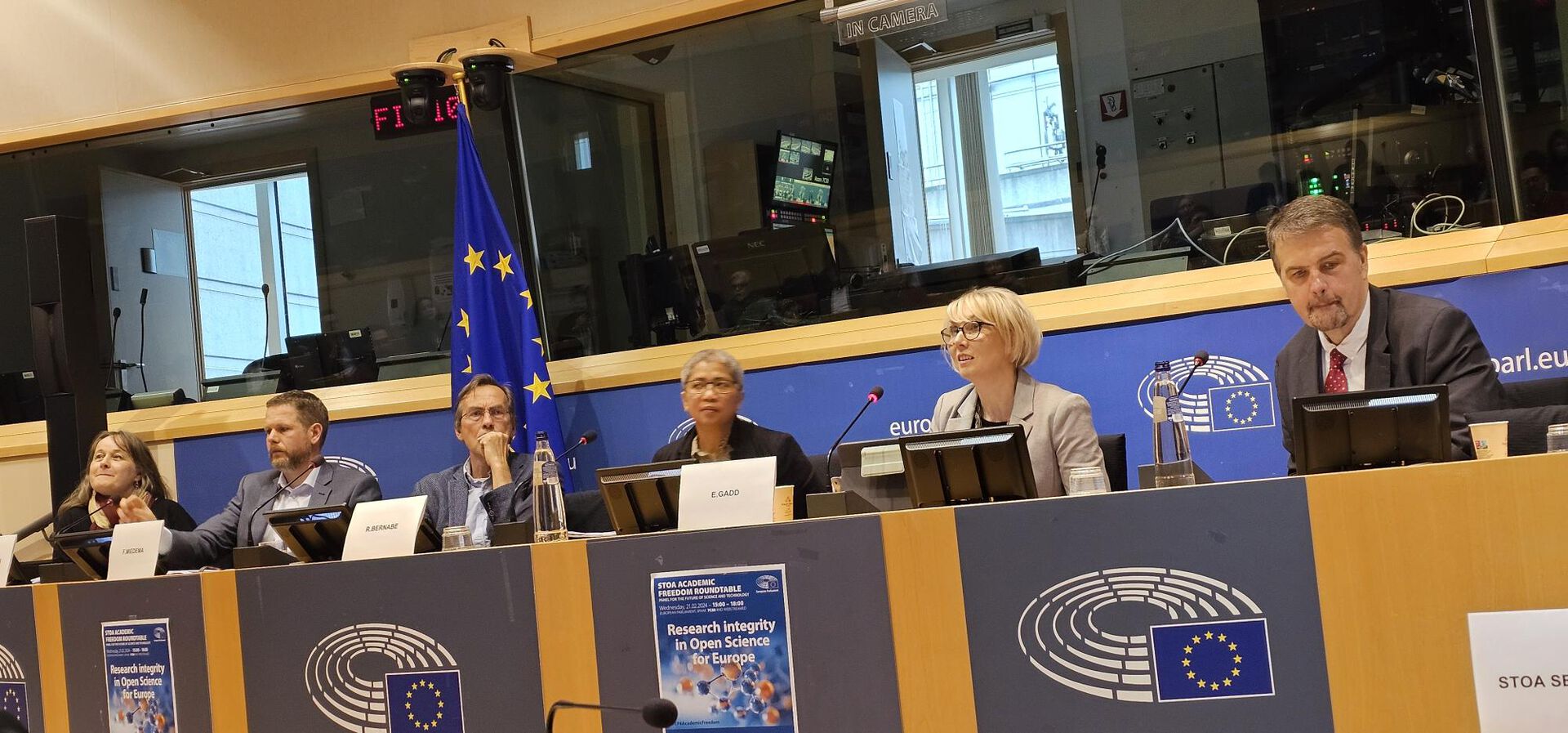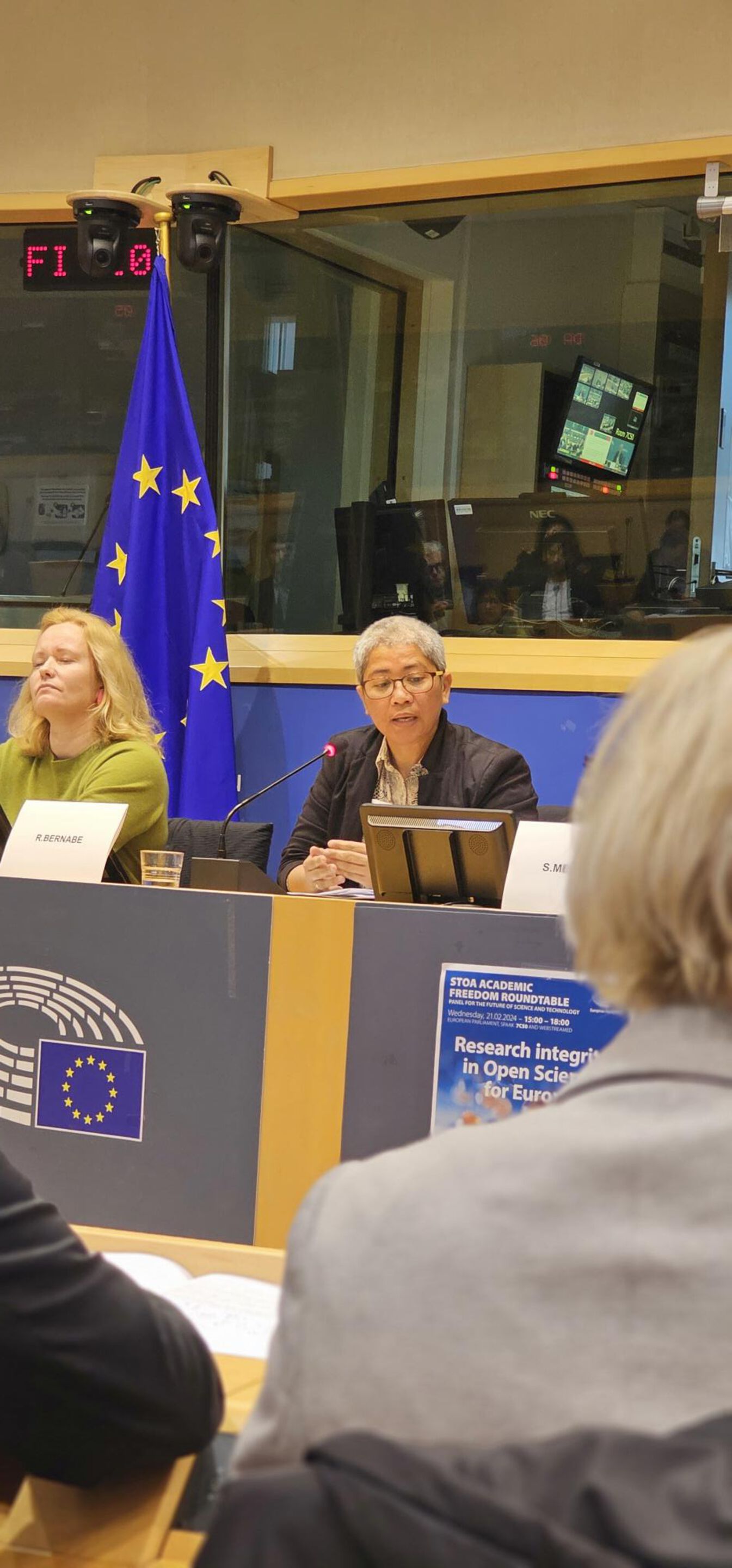A roundtable discussion at the European Parliament provided valuable insights into navigating the complexities of Open Science and Academic Freedom.

Present in the discussion was UiO Professor Rosemarie de La Cruz Bernabe, coordinator for the EU-project ROSiE - Responsible Open Science in Europe.
ROSiE is a three-year project funded by HORIZON2020. Its mission is to co-create with all related stakeholders novel practical tools to foster a responsible open science and citizen science.
In Brussels participants explored ways to promote inclusion and transparency in research, recognizing the importance of addressing inequities and barriers to access.
"We can never leave open science simply latent when we talk about academic freedom. Responsible open science must be recognized as fundamental to the governance of academic freedom", says Professor Bernabe
Preserving scientific integrity
 It was the STOA Network that hosted the roundtable discussion. STOA is active in science and technology policy networks on an international level. It is a founding member of the European Parliamentary Technology Assessment (EPTA) network.
It was the STOA Network that hosted the roundtable discussion. STOA is active in science and technology policy networks on an international level. It is a founding member of the European Parliamentary Technology Assessment (EPTA) network.
The event showcased the results of the ROSiE project and presentations addressing the challenges of Open Science and the intersection between Open Science and Academic Freedom. It brought together diverse perspectives, ranging from academic ethics to innovation management, shedding light on the multifaceted nature of the topic.
"As open science continues to evolve, fostering a culture of openness, accountability, and integrity remains paramount to maintaining public trust and preserving scientific integrity", Professor Bernabe says.
University leadership
In a landscape where academic freedom is intertwined with the imperative to maintain integrity, particularly amid geopolitical tensions, the Roundtable underscored the importance of clear guidelines and ethical governance in academic institutions.
"The presentations highlighted the central role of universities as custodians of research, supporting openness and collaboration with society. The need for university leadership and funders to support researchers in navigating the complexities of open science while maintaining integrity was also emphasized", Professor Bernabe says.
The STOA Academic Freedom Roundtable, focusing on "Research Integrity in Open Science for Europe," organized by the European Parliament, was held on February 21, 2024, in Brussels-






